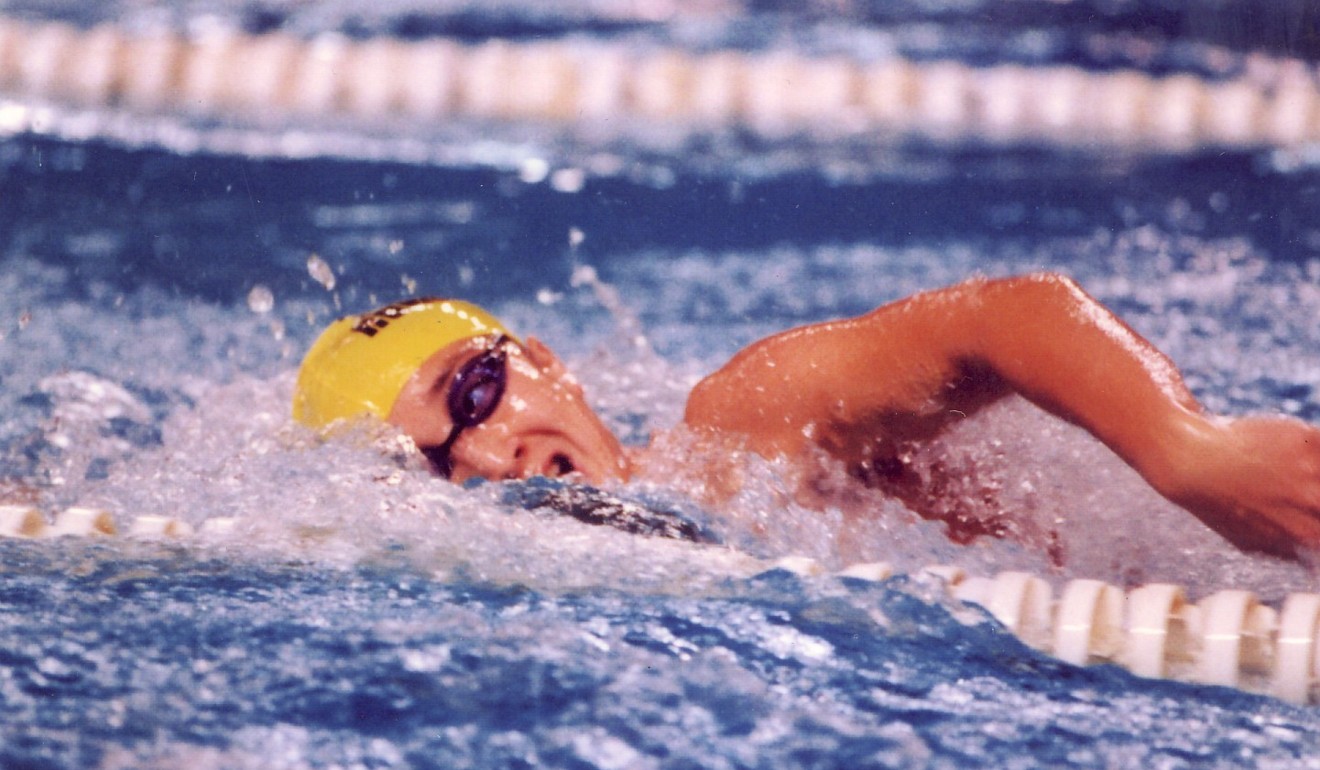
Hong Kong swimming school of Alex Fong, singer, actor and former Olympian, teaches kids skills for both in and out the pool
Alex Fong talks about his new academy which aims to nurture a new generation of swimmers, as well as help children from poor families and new immigrants get into swimming
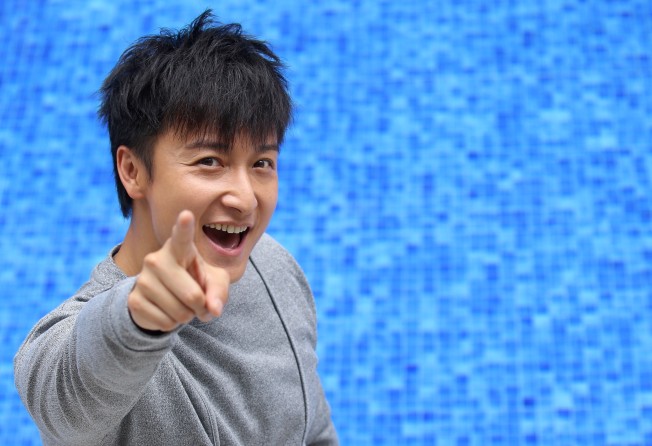
Alex Fong Lik-sun is a rare talent who dived from a record-breaking swimming career into a high-voltage entertainment one thanks to hard work, unbridled passion and the will to power through challenges.
Looking back on 18 years in show business – including more than 50 film performances – Fong explains that lessons learned during his pro-swimming days have contributed to his success today.
Fong was nicknamed “Little Flying Fish” for his achievements in the pool, which include breaking Hong Kong records for 200m backstroke (2:05.47) and 400m individual medley (4:29.02) at the Sydney Olympics in 2000 – records he still holds today.
“My character and personality today are mainly from swimming and swim training, where I learned about sportsmanship, discipline, being humble, and working hard [to achieve my dreams], especially in overcoming difficulties,” Fong says.
Now the entertainer thinks he and his team of coaches at the Hong Kong Swimming Academy (HKSA), a HK$1 million (US$130,000) venture he set up with a partner, can nurture a new generation of swimmers by not only by equipping them with aquatic skills, but tools to help them in life.
“The difference between our swimming club versus others in Hong Kong is that other clubs may teach kids how to win, but we teach kids how to lose [too],” says Fong during a poolside chat at Pentahotel Hong Kong in Kowloon.

Fong believes young people today face less adversity than previous generations, perhaps because parents increasingly shield them from difficulties. He sees sports as an avenue in which youngsters can still be tested and shaped.
“Through sports you will face a lot of failures – even if you work hard, you will lose because sometimes the outcome is due to your teammates, or your condition wasn’t good enough that day,” he explains. “Students need to know that through training, you will face a lot of failures, so when you grow up, you won’t be afraid to face other obstacles.”
The HKSA courses cater mainly for infants and teenagers, but select sessions are also available for adults. Starter classes for those aged 18 months and up help new swimmers learn how to do things like submerge and float (parents join the sessions). Meanwhile, “improver” courses help swimmers hone their form.
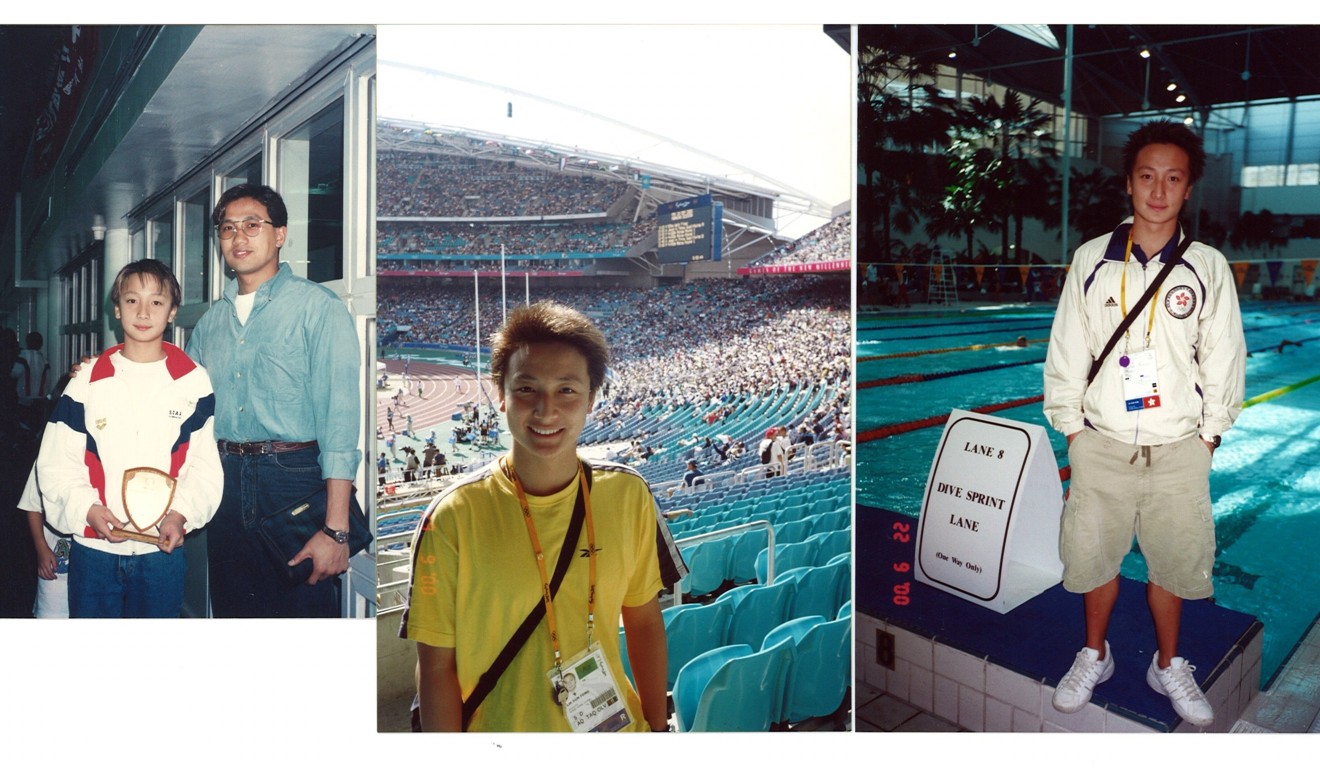
Fong says he has had many experiences abroad as an ambassador for various charities that have instilled in him a gratitude and a willingness to help others. This forms the basis of his “Swim” programme (Swimming With Integrity and Meaning), which includes community-oriented initiatives such as taking part in social causes.
This month, in collaboration with the Society for Community Organisation, HKSA will fully sponsor swimming lessons for around 20 poor students from Sham Shui Po. It is also working with Run, a Hong Kong-based charity, to provide swimming classes for new immigrants. More projects with community groups are in the pipeline, including one with Inspiring HK to support underprivileged youth through sports.
Maybe it’s because I’m a former athlete, but I care about my ability, strength and endurance more than my looks
Fong began swimming at the age of two, with a nudge from his family. “My grandad and dad used to swim; that’s why they wanted me to become a swimmer,” he recalls.
Eventually the sport became an all-consuming affair that saw him grinding through training to better his times. “You needed to swim almost every day if you wanted to be good.”
After dedicating much of his youth to swimming, Fong turned to land-based sports to get fitter, including running, and now regularly does 10km runs. A decade ago, he ran a full marathon under four hours, a real accomplishment for someone who used to hate long-distance cardio.
“There’s an ongoing joke in the swimming [scene]: why we chose swimming is because we hate running,” he says.
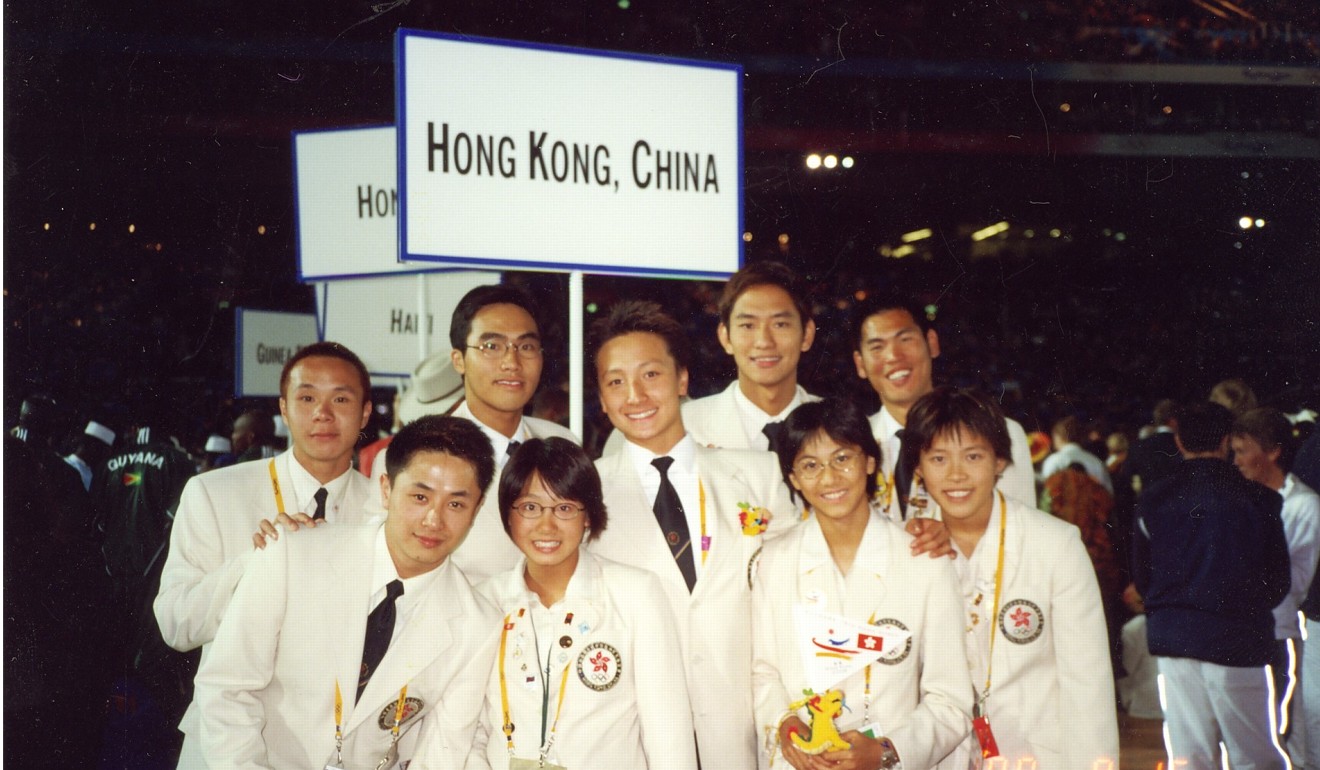
Nowadays Fong is a gym hound who trains four times a week, though it is the StairMaster, not the treadmill, that is his go-to machine. He also goes to the park for body weight training, where he does things like dips, push-ups and pull-ups. High intensity interval training is part of his regimen, too.
“Maybe it’s because I’m a former athlete, but I care about my ability, strength and endurance more than my looks,” he says.
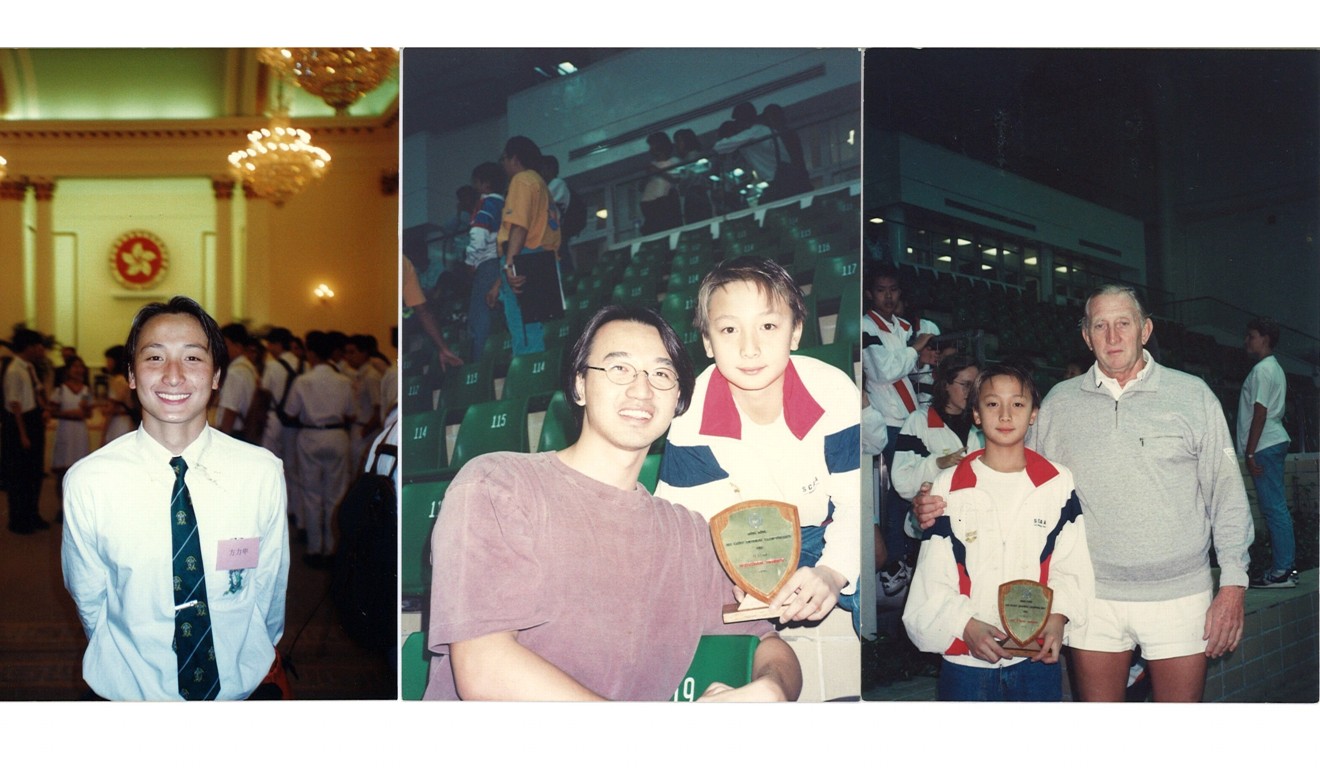
Although not one of HKSA’s coaches himself, Fong has lately been getting into the pool with learners to the surprise of his coaching team. “I know many coaches who trained high-level swimmers who didn’t get in the water but corrected the students’ form while on dry land,” he says. “If you don’t see their strokes underwater, how do you know if they are doing [them properly]?”
As most competitive swimmers will attest, their career is a race against time while they are in their physical prime. Fong first felt the tug of retirement in 2001 while in his early 20s, when he was also contemplating a move into the entertainment business.
He first dipped his toes into the entertainment scene in 1999 for a soap opera on RTHK Television, to play the part of a swimmer. He relished the extra cash: “I thought HK$800 per day was a good deal at the time.”
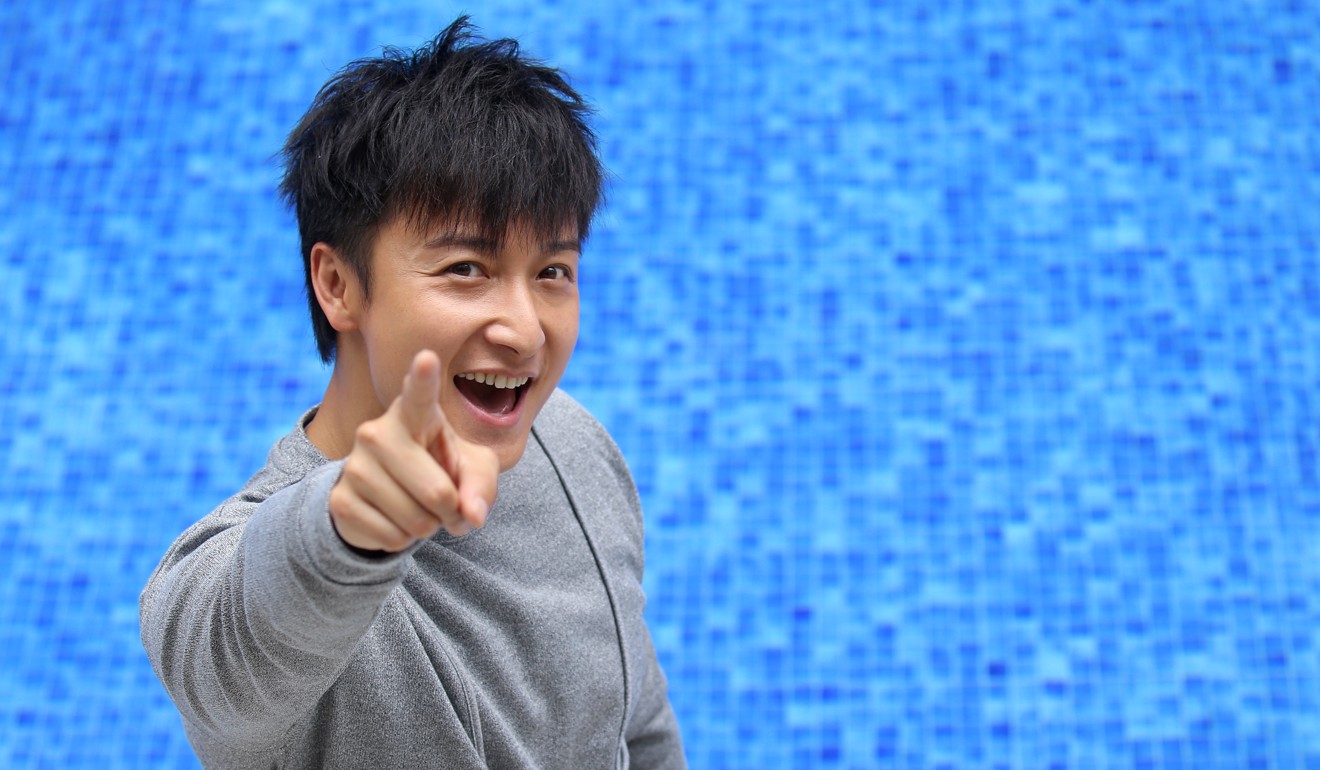
His performance at the Sydney Olympics a year later brought great exposure, just as the entertainment industry was looking for a fresh face.
“I knew in my swimming career, my height [5 foot 9 inches, 1.75m] was a limitation, that I had a slim chance of getting medals. So I decided to try this other business and hoped it could be a lifetime career.”
Fong admits that he struggled during his transition from swimming to entertainment, often giving below-par performances. Some audience members reacted strongly, shouting things like, “You suck!” This only made matters worse – he had rarely received anything but praise in the pool. He suggests that elite athletes making a leap into a new career learn to let go of the high-performance mindset, something which held him back during his climb up the entertainment ladder.
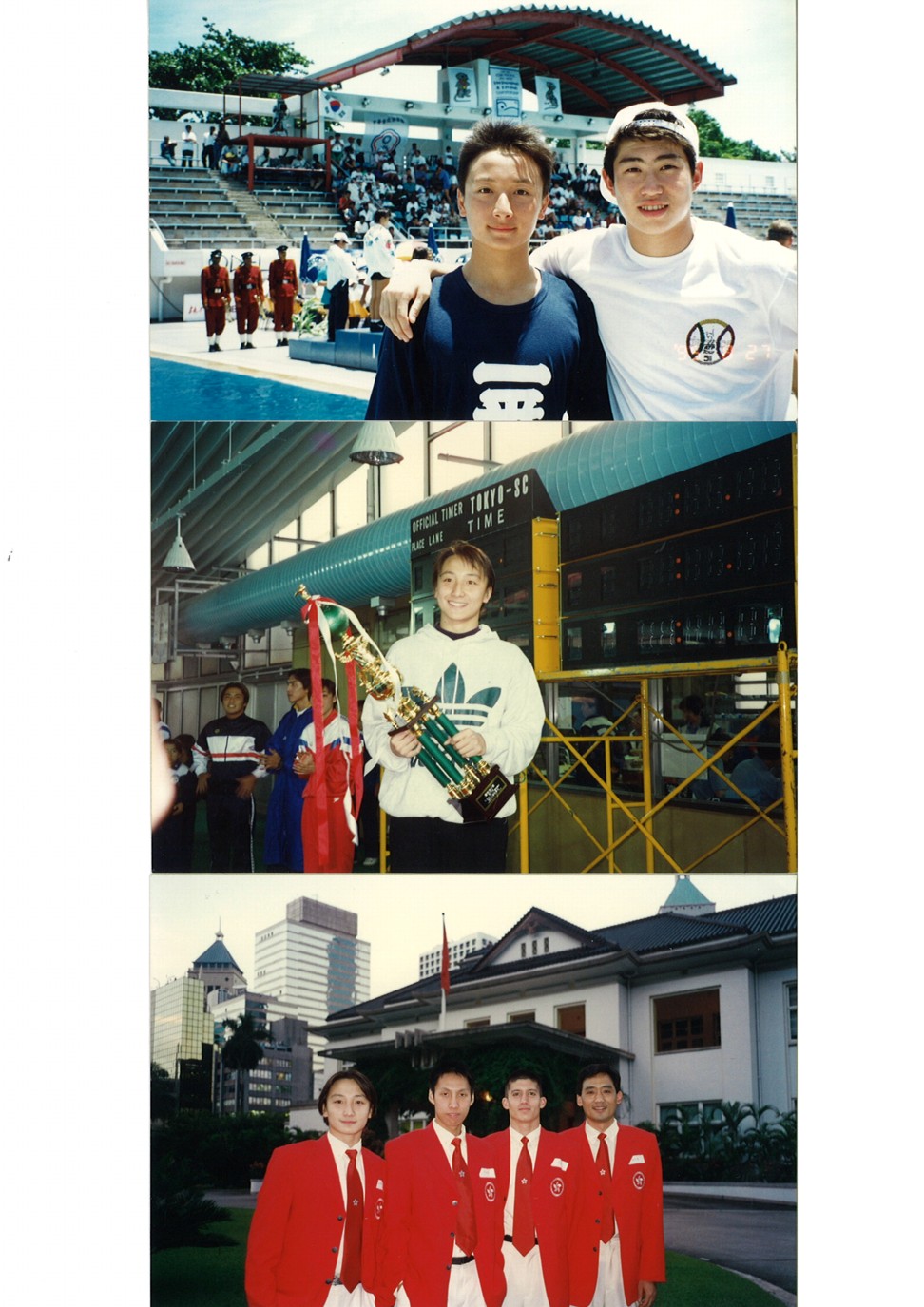
He says he was also wrong to rebuff advice early on about learning to dance or play an instrument.
“I was two years old when I started swimming … I thought: ‘How can you be good if you start something at 20-something years old?’” he says. “Looking back, I’ve already been in the entertainment business for almost 20 years. If I had started learning dancing back then, I may not be a Justin Timberlake or Usher, but at least I could perform and do a decent job.”
He urges others not to make the same mistakes. “Don’t set your standards too high. Do it step by step. As long as you have the interest in [what you do], you can get what you want.”
Fong hopes to nurture students at HKSA to reach their goals too, whatever they may be. But will the pop star charge fees for swimming lessons?
“If I teach kids then go off and do a movie then come back to teach, that’s not fair to the kids,” he says. He insists he will be there as much as possible to host courses and share experiences to motivate learners. “Parents would be happier to see me and not have to pay me, but [know] that I’m there for the kids.”